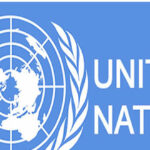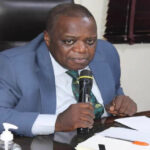
Human rights activist and #EndSARS campaigner, Rinu Oduala, talks to TOPE OMOGBOLAGUN about youths’ participation in politics, particularly the forthcoming 2023 general elections
The Independent National Electoral Commission’s record shows that there was a 9% decline in the number of youth registered voters between 2019 and 2023. Don’t you think that the social media perception of youth awareness and participation in 2023 is overrated?
No, I do not think social media’s perception of youth awareness and participation is overrated. The shortcomings of this administration and the level of hardship in our country are what I think are understated.
Many people encourage young people to vote, but they forget that there are many reasons for young people not to vote in the 2023 elections, such as Nigeria’s high unemployment rate of more than 30%, placed among the highest in the world.
How can we encourage youth involvement when the last eight years of our lives have been embroiled in the worst type of governance? More than 60% of young people are unemployed; there is widespread insecurity, brain drain, broken promises, intensified corruption, and an alarming state of human rights abuse, including police brutality; over 20 million children are not in school; and the country’s education system is in disarray. There is no government presence in the lives of young people, yet we demand that they engage.
In addition to abstaining from political engagement as a kind of civil disobedience, many young people do so out of apathy or disinterest in the process as a whole. Should we discuss the corrupt and fraudulent way we have seen elections conducted in Nigeria, the difficult process of registering voters, the inevitable electoral violence, or even the important question of whether our votes actually count?
However, based on the figures we have from INEC, a considerable number of new voters in this election are young people, who also make up a significant portion of the total number of registered voters.
This information suggests that there is still a great deal of interest and involvement, and it is clear that many young people want to have a say over who the nation’s next leaders will be. Not to mention the fact that when young Nigerians protest, our politicians typically state that we don’t vote.
Well, another generation has recently become conscious of their need to perform their civic duties. Some of them have made the decision to ‘Japa’ (travel abroad) while others have decided to vote.
Many young people online appear to be devoted to a single candidate and political party. Do you think the young population can deliver the desired vote to their candidate?
Yes, I think so. Their preference for a candidate reflects their dissatisfaction with the systems and ancient leaders who have failed the nation by failing to grasp the challenges at hand.
According to local data, young people have continued to sign up for voter cards despite the situation of the country as it stands now.
As a result, it is clear that they want to get involved and play their part, but they have never been given the chance to do so. If they are not denied their right to vote or are oppressed, they will cast the desired number of votes.
What are the youth doing to win the older generation over to their side?
It’s a divide between the generation that has given up on Nigeria and turned to selling their votes each election cycle in order to simply obtain their own piece of the national cake anytime or vote along religious and ethnic lines, and the generation that thinks Nigeria can be better with their engagement.
With our participation in mass movements with energy and passion, showing recipes for good governance and a working nation, young Nigerians are saying, “We were never lazy!”
Opportunities to excel have simply been denied, and with each passing day, we say, “Vote for a bright future; vote for people who will not stifle our aspirations or keep hostage our ideals of a free, peaceful, inclusive, and democratic Nigeria.”
There has been a lot of clamour for the Federal Government to close tertiary institutions in order to allow the young populace to vote. What is your take on this?
Students account for over 40% of newly registered voters, while over 25 million of the currently registered voters are students. This is about the total number of votes received by all presidential candidates in the last election.
The student vote is just too significant to be ignored in the approaching elections. The FG must respond to the appeals against shutting down the institutions to make sure they all get to vote.
Additionally, it will refute the myth that youth are purposefully kept out of the electoral process in order to advance the interests of the older generation.
There has been this general song among the youth about wanting a young president. Should age be the major criterion for choosing our leaders?
Competence, character, and capacity should be the primary criteria for selecting our leaders, as well as visionary and transformational people who represent a bright future for all generations. Competence and capacity are greatly influenced by age, so young people are on the right track when they call for a young president.
Have our older presidents not let us down? Have they not abandoned their offices in exchange for medical tourism?
Even the current president spent more than 200 days in hospitals, treating unknown ailments. Young people in Nigeria today are expected to take on all tasks except leadership.
Today, youth make up more than 60% of the population of Nigeria. Is it unreasonable to demand a president who will comprehend current events on a global scale and the needs of these young people? Is it too much to argue that we don’t need another president who needs to be recharged in foreign hospitals every few weeks?
A president who will not dismiss our demands as insignificant and label us as lazy? Because of the reality of our political system, Nigeria is burdened by a generation of leaders who have outlived their utility and effectiveness due to old age; Nigeria requires a dynamic leader.
Despite the passage of the “Not Too Young to Run” bill, youth representation in political leadership is still less than 1%. Why hasn’t Nigerian youth been able to move past this box?
They haven’t been able to move past the box, as this is the outcome of years of indifference brought on by government corruption and poor leadership, which led to young Nigerians losing hope in and disengaging from traditional politics.
In Nigeria, politics has become incredibly expensive. How can we expect young people in Nigeria, where the majority are unemployed or underemployed, to bear the cost of political work with a 60% youth unemployment rate?
In recent primaries last year, many party nomination forms reached $100,000 in a nation where the minimum wage is less than $100 and where parties are run by political heavyweights and godfathers who expect favours to be paid back once you are elected.
Only the old politicians who have established patronage networks and vote-buying structures and who currently profit from the wasteful and extravagant political system in Nigeria, who have made sure poverty is entrenched and who have also established patronage networks and vote-buying structures along religious, ethnic, and class lines, can thrive in the system they created.
You were at the forefront of the #EndSARS protest. Would you say the protest inspired any change in Nigeria?
Yes, there have been significant changes, and the evidence is right in front of you. There is a social awakening as well as a political rebellion against traditional political leaders.
#EndSARS ushered in a new social contract. Young Nigerians have developed a distinct viewpoint on how leaders and public servants should interact with citizens.
In addition, Nigeria’s youth are redefining governance, and politicians and leaders are awakening to a new politically conscious society.
Given the rise of this new political consciousness, it will not be business as usual for the country’s political leaders. The protest’s effectiveness in eliciting concessions from the government has instilled confidence in Nigerian youths, who believe they can make a difference and are now doing so.
Young people have started to lead protests in some parts of the country over the scarcity of new naira and fuel. Do you think that this might soon snowball into a nationwide protest?
So far, the protests have yielded nothing concrete.
What is your advice to young Nigerians, particularly about the forthcoming elections?
There is another important place to protest in Nigeria, where we must all be avid and energetic protesters. We must let our anger guide us into voting for the right leaders; our protest songs must turn into thumbprints on the ballot boxes, and our placards must be our PVCs.
Staying out is not the solution. There is a true Nigerian dream. It is the “E go better” dream, where you and I can live without having to consider “Japa” to another man’s land.
We can have a Nigeria where our best won’t be leaving to work in other countries because there is unemployment and underemployment; a nation that will prioritise education and healthcare; where our votes count; where we will have a government of the people, for the people, and by the people.
It is possible to have a working country, and if Nigeria gets it right, Africa will get it right.





